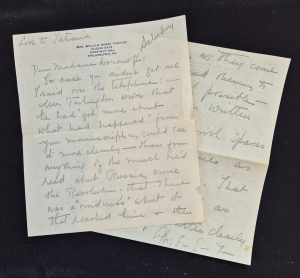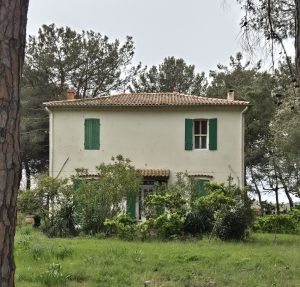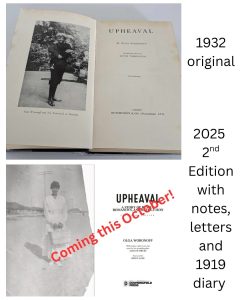Once again I have found something interesting in my quest to sort through the paperwork and documents I inherited from my parents.
The picture above shows the front and back of a small card, around the size of a business card, I found tucked away in some of my father’s papers. It sparked my curiousity. Even without translating the title on the card, one can figure out it had something to do with chimney sweeps. As far as I know, the closest my father would have ever come to a chimney sweep is if one had cleaned a chimney for him and I can only remember having one working chimney in our houses – and that was in Australia!
I Googled “The Schornsteinfeger Club” without much success. So I tried Googling Merle Potter, who had signed the card. In the University of Wisconsin Digital Collections I found the explanation, which I have to say, surprised me.
I cannot find the exact date it was started but apparently the Schornsteinfeger Club was a worldwide, good-will organisation with over 16,000 members. It must have begun sometime after WWII and was originated when Mr Merle Potter, an adviser on American-German relations to the OMGUS (Office of Military Government US) Chief of Staff, was faced with a fifth Christmas in Berlin, away from family and friends. He knew firsthand the need of the German people for clothes, food and comfort after the war and thought only of the happiness he would feel if he could help them. He wrote to 150 of his friends and acquaintances in the US media asking for donations of at least one article of unneeded but usable clothing. His appeal was broadcast throughout America and donations began pouring into Mr Potter’s office in Berlin.
From this small start a club was formed. Anyone who donated either clothing or money became a life member. The symbol of the chimney sweep was chosen as the logo because in Europe it is considered good luck to see a chimney sweep.
Soon Germans also became members of this wonderful club. Although hardly in a position to contribute much, the German members, despite their own poverty, donated what they could to their less fortunate countrymen. According to the article I read, “Germans were admitted to membership in the club by paying a membership fee of at least one item of usable clothing or five marks or more.”
So it looks as if my father was a member of this worthwhile club. It makes me smile to know he did something to help those in more need than himself, at a very difficult time in his life. I know he had very little himself, he was just scraping by. I can only guess he donated money, as I doubt he had any old clothes. I know for a fact that, when he was released from the prisoner of war camp, he did not even own the uniform he was wearing. It makes me proud that, despite his own poverty, he helped others.
Information on the Schornsteinfeger Club found at this website: http://digicoll.library.wisc.edu/cgi-bin/History/History-idx?type=div&did=History.omg1948n150.i0008&isize=text




